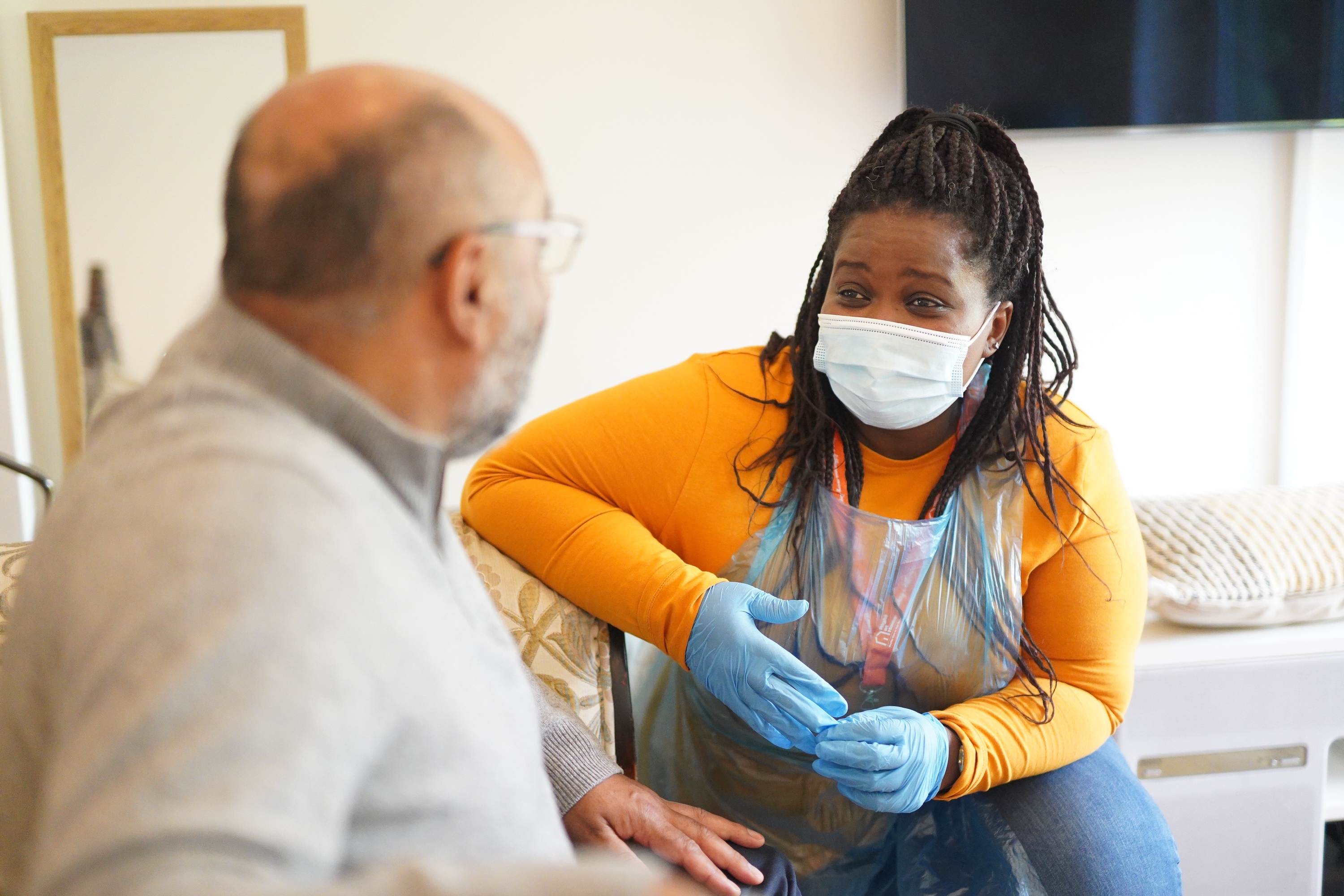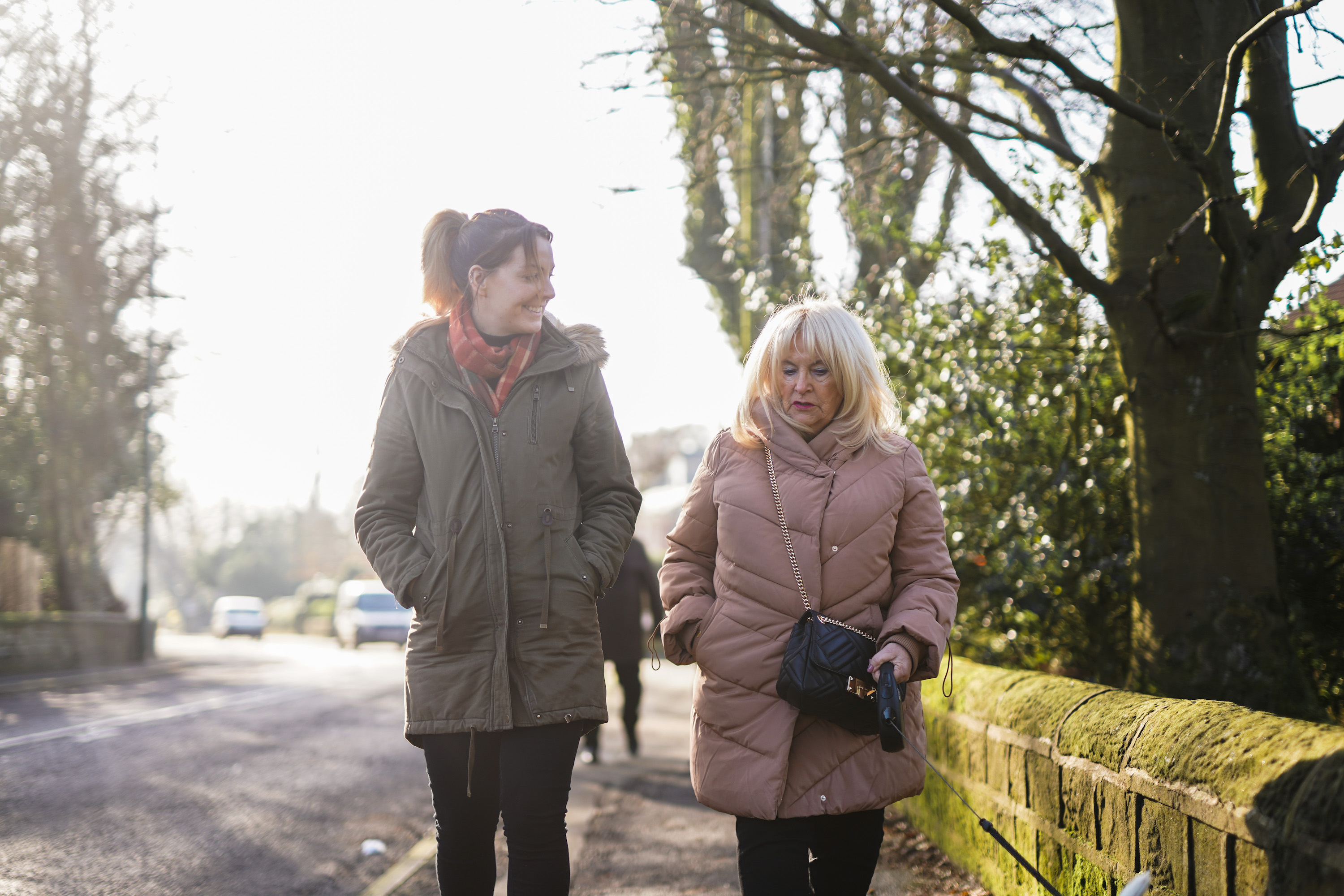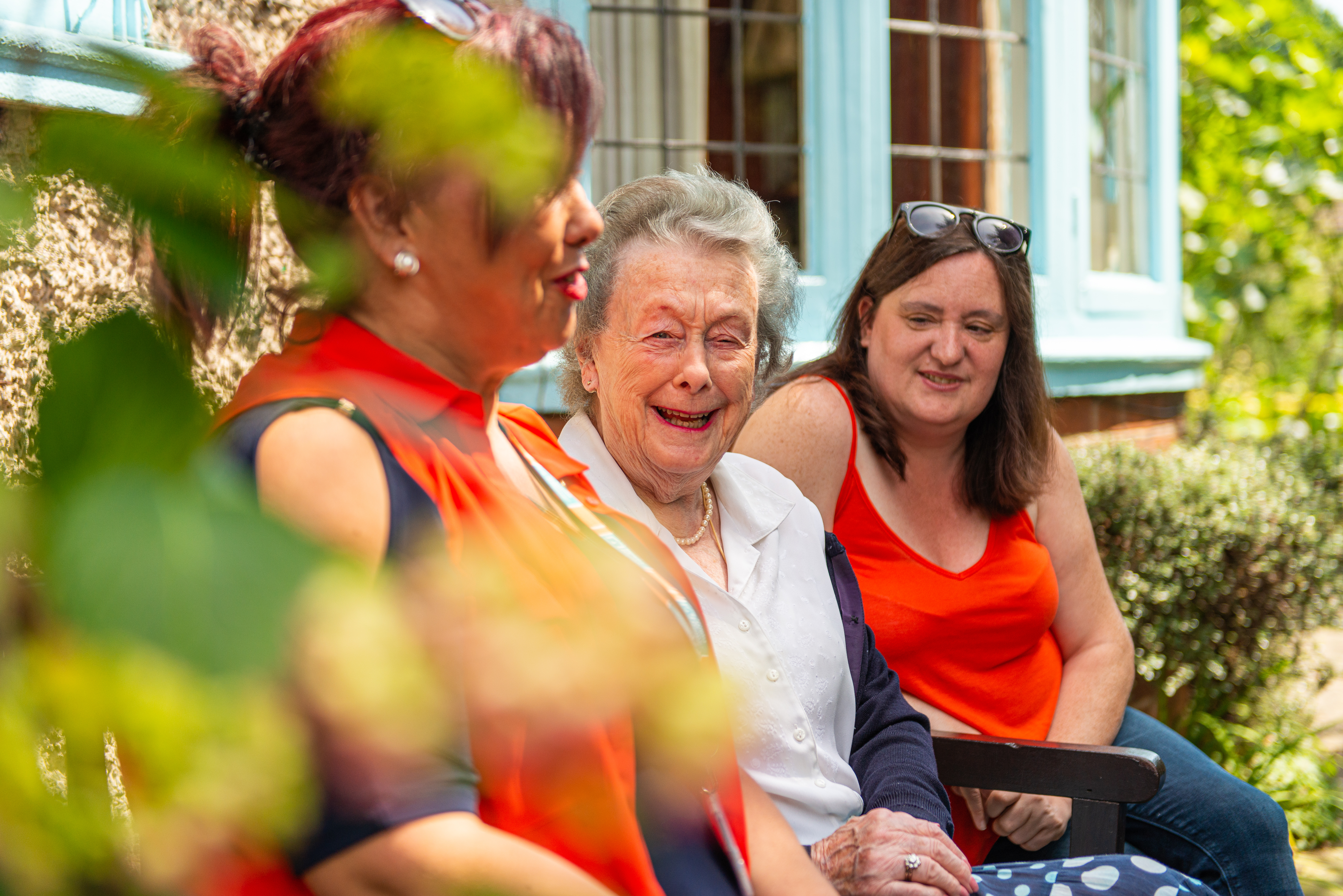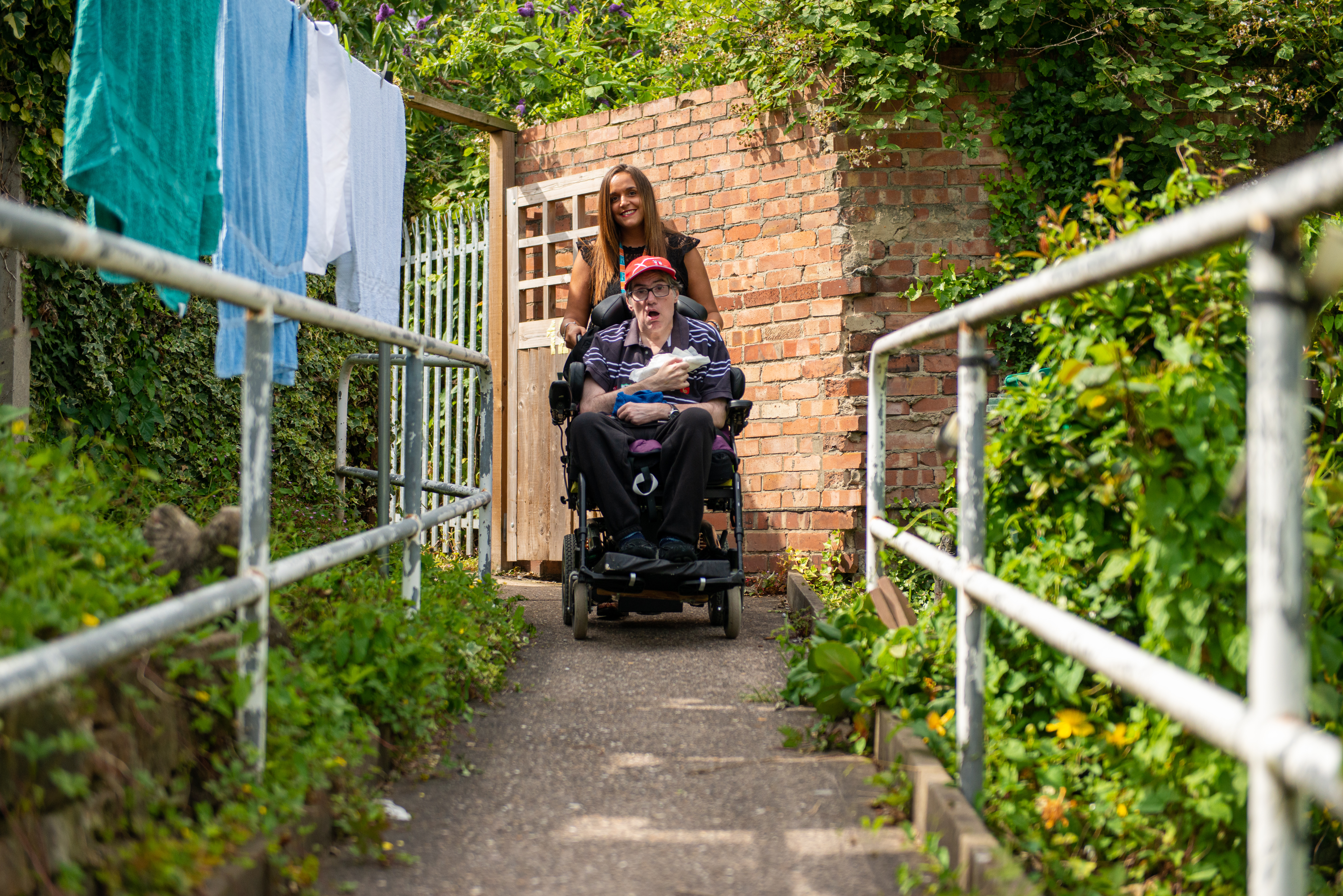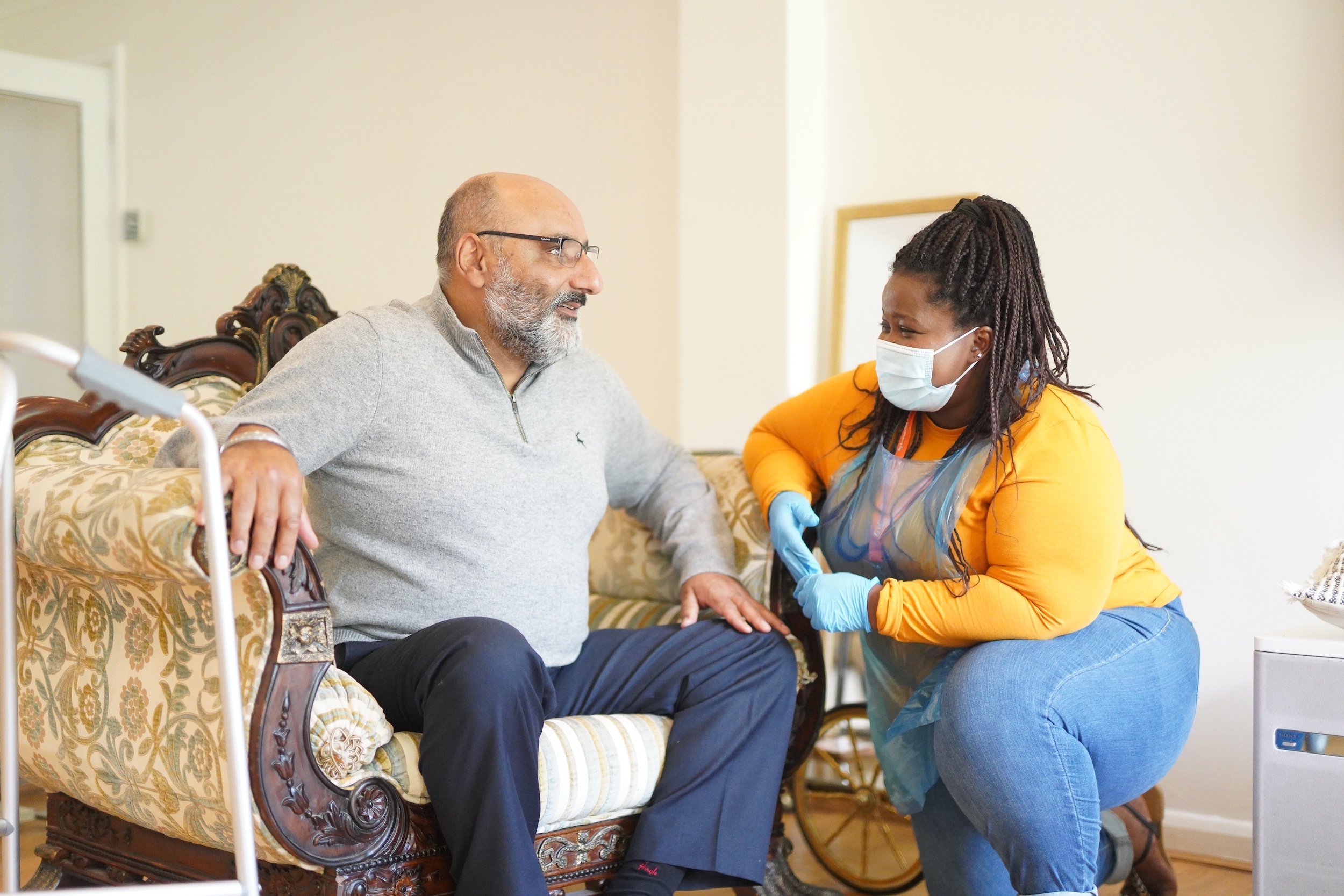
How can I prevent falls at home?
Did you know that one in three aged adults will have a fall this year causing fatal and non-fatal injuries?
Published: 02/08/2023
Did you know that one in three aged adults will have a fall this year causing fatal and non-fatal injuries?
As we grow older the risk of falls becomes more likely, as our muscles and bones lose strength and weaken. The result of falls, in some cases sadly, can be more serious for elderly people. Thankfully there are lots of ways we can help prevent falls in and around the home. If you or a loved one has had a fall in the past, making a few minor changes can help build confidence again and prevent further, future falls. At Right at Home Mitcham Streatham and Dulwich, we strive are determined to support our Clients and their families to prevent falls at home across South London.
If you are concerned about the risk of falls, it’s important you seek the assistance of your GP or healthcare specialist. They take falls in elderly people very seriously, as they can have a significant impact on health and wellbeing.
How can I prevent falls at home?
There are many of ways you can make your home safer and prevent falls. From small changes to your home to slight changes in your daily routine, there are lots of ways you can make the home a safer place to avoid falls. Here are some tips from Right at Home Mitcham Streatham and Dulwich to prevent falls at home:
- Poor lighting within the home can make it hard to notice fall hazards and a lack of visibility increases risk. Consider installing extra lighting, particularly in rooms that are darker. Use high wattage light bulbs and replace yellow light bulbs with white light. Consider installing motion-sensor lights on stairs, steps and outside your house.
- Clutter can make it tricky to navigate your home and may increase the chance of falling. Reduce clutter by keeping items that are not used daily in wardrobes or cupboards. Ensure curtains aren’t too long and don’t trail on the floor. Remove clutter and other obstacles from regularly used areas in the home. Place a water absorbent, non-skid mat in front of sinks, baths and showers.
- Take care when you get up from chairs and out of bed. Going from a relaxed position to moving around quickly can make you lightheaded. Your muscles can also seize up as you’ve been stationary, so sometimes it is initially harder to move. When getting out of bed or up from chairs take your time. Consider chairs or sofas that offer more support and stability, including sturdy armrests. Keep a walking stick close to hand and use it to support you as you get up. Avoid excess cushions, pillows, throws on the bed that could fall onto the floor at the night. Turn on bedside lamp on before standing up to provide extra visibility.
- The type of clothing and shoes you wear may be increasing your risk of falling. Don’t wear loose-fitting/trailing clothes that may trip you up. Avoid long necklaces or scarfs that could get caught on items. Choose socks with rubber grips on the sole. Invest in a shoe horn to make putting shoes on easier. Avoid walking around/in/throughout the house without any slippers on. Visit your local chiropodist (Dulwich Podiatry) to ensure your feet remain in good health.
- To avoid tripping on objects, carpets and steps move all regularly used items to eye level where feasible. Repair faulty steps and any carpets or coverings. Install carpets or non-slip rubber threads. Remove rugs if the room is already carpeted.
- It’s important to maintain a healthy diet at any age, as the food and drink we consume directly effects on our physical and mental health. Here are some manageable changes you can make to your diet that can be directly linked to falls. Review your Vitamin D levels - Being unable to get outside often can cause a Vitamin D deficiency due to a lack of exposure to sunlight. This can cause bones to become thin, brittle, weak or misshapen. Talk to your doctor about Vitamin D supplements which can be a simple solution.
- Prevent dehydration - There are many reasons why the elderly may become dehydrated, such as forgetting to drink enough or not feeling thirsty. Keeping a water bottle with you throughout the day can be a gentle reminder to drink more water.
- Exercise regularly - engaging in regular physical activity helps improve your strength and balance. You don’t have to run a mile every day - try activities such as walking or some short exercise programmes such as 10-minute Pilates or chair yoga. These are great exercises to improve muscle strength and reduce the risk of falling.
Here at Right at Home Mitcham Streatham and Dulwich, as part of our initial care assessment, we carry out a risk assessment. This assessment is to mitigate risks and make recommendations that can support the safety of our Clients living at home, as well as understand how best our team of CareGivers can support you. For further advice on preventing falls in the home, room-by-room, email us mitcham@rightathome.co.uk to request a copy of our Falls Prevention Guide.
For more information about our care services or to book a free homecare assessment, contact us today for a chat on 0208 004 9644.
